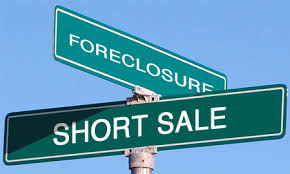Short Sales

Foreclosure Basics for Washington State
March 26, 2009
Bainbridge Island Little League Opening Day
April 12, 2009
With my recent post on foreclosures, that leads me right into the topic of short sales -another buzz term that is dancing around this new real estate market we have all entered.
A short sale occurs when a home is sold, usually through the traditional “list it with an agent,” but, in a short sale, the amount the home sells for (after closing costs) does not cover the loan amount.
Let me give you an example of what is going on a lot around the island. Happy Family was moved out to the Seattle area in 2006 by the then prosperous Acme Company because the company was expanding their Seattle office. However, now, in 2009, Acme Company, now downsizing, is shutting their Seattle office and needs to move not-so Happy Family back to the East Coast.
Well, in 2006, Happy Family bought their home for $750K and put down 10%, which is $75K. Happy Family saw one year of appreciation until July of 2007, when their home went from $750K to $775K between 2006 and 2007. But, in the summer of 2007 the real estate brakes went on and the prices began to slide back down. So, today, let’s say their home’s market value is $700K. If Happy Family sells their home for $690K, after closing costs and taxes, they would net roughly $640K
So, let’s look at their situation – Happy Family owes $675K to their lender, so the difference is $35K. If they themselves can not bring that $35K “to the table” at closing, they can attempt to get approval from their lender to forgive that amount. So, basically, the bank is saying, ok, we will cut our loses and get most of our moeny back and only take a minor hit.
However, there are several issues to consider before deciding to do something like this. One is that the $35K the lender has forgiven has to be declared as income on your part and you will have to pay income taxes on it. Any lender who forgives debt is required to provide a Form 1099 information report to the borrower and to the IRS stating the amount of the forgiven debt. The Form 1099 will be required in any circumstance when a debt is forgiven, whether it is a short sale, foreclosure, deed in lieu of foreclosure or any similar arrangement that relieves the borrower of the obligation to pay some portion of a debt.
Note: The National Association of Realtors is trying to change the fact that homeowner have to pay taxes on this forgiven amount. NAR has identified sponsors for a new bill that would assure that any debt forgiven on disposition of a principal residence will not be taxed. They hope to move this forward in April.
Second, is that a short sale will negatively impact your credit and could stay on your credit record for 2-7 years, depending on your exact situation. So, if after your short sale, you are moving to a new town, for a new job, buying a home could be a challenge for several years.
Another point is that a short sale is not necessarily a foreclosure or even a pre-foreclosure for that matter. Many homeowners in a short sale situation have never missed a payment and are not in default in any way, their home value has just declined. They homeowner is just “upside down” as many people say and that is simply because their home is worth less than they paid for it.
And also, oftentimes, second or home equity lines of credit are in play here too, which just compounds the short sale situation, meaning the homeowner owes money to several banks, that they can not pay back due to their loss in equity.
The best advice I can give you is to consult a real estate attorney (usually for a $150 consultation fee) to find out how a short sale will affect your personal financial situation.




